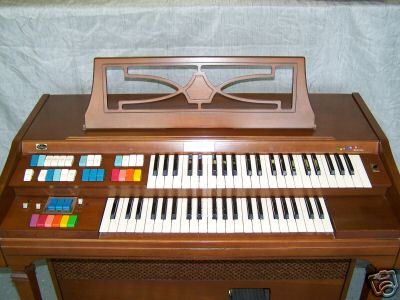I've been playing piano since I was five and, while there have been short periods when performing music has fallen out of my interests, I have almost always had an appreciation for a completely live performance. Such a performance can include anything from a single instrument and voice all they way up to a full orchestra.
I remember playing as a teenager in the 80s-drenched synth-oriented dance pop that pervaded the charts. I remember even buying into the concept of a synthesizer or two but hated the concept of the dreaded sequencers and samplers that would allow even the most inept players to spout forth with "cool" sounding patterns and loops. I could tolerate the idea of a synthesizer making sounds that were unique to the instrument itself and not trying to generate something else. With the persistent adoption of drum machines and string patches and horn sections and poorly-modelled electric pianos, I retreated further into a state that I considered a bit of musical elitism: a piano sound should come from a piano, a drum sound should come from a drum, and a bass guitar sound should come from a bass guitar.
Don't get me wrong, I understand the attraction of simulation. I have recorded songs where I've used a keyboard to create multiple music tracks, but always, in my head at least, the exercise was just that - an exercise. Call me old-fashioned when it comes to music, but I believe there should be something organic to musical sound. And this from a guy who grew up idolizing Keith Emerson and his endlessly-tweakable envelope filters.
As I grew older, I developed a certain tolerance for auto-accompaniment, but always with a sense of kitsch. The idea of the cheesy home organ with beat generator and portamento was to being smiled at and laughed with instead of laughed at. I am willing to listen to someone satrize a traditionally serious song by giving it the Wurlitzer treatment.
And it was with all this derision that I shook my head in disbelief when I learned of Microsoft's Songsmith software during CES last month. While this product's limitations have been shown to glorious and humorous effect by copying the vocal lines of past hits into its engine and watching the generic "reggae" or "soft rock" accompaniment get triggered, could anyone have really expected anything different... you know what? I was exepecting better.
While I believe the concept abhorrent and completely against all of my sensibilities about music, I fully expect that the technology is not out of reach to mesh anyone's random vocalizing with a very solid sounding accompaniment. I anticipate that no matter how bad someone sings, the software's engine should, on the fly, fix any out of tune notes and quantize the rhythmless until they sound inoffensive. I expect that music AI has advanced far enough that realistic-sounding instruments can be modelled in real time to sound at least as good as many of the mediocre ballads that are in the top ten of most pop music charts.
I expect we're on that threshold and, while it should scare the hell out of me, I've discovered I really don't care because if some out-of-tune arhythmic cellar dweller can one day sell a million copies of a song they produced in their basement, and maybe flip the RIAA and the Big Four the finger while doing so, I'll buy a cake and with wry, smiling dismay blow out the last candle on musical integrity.
